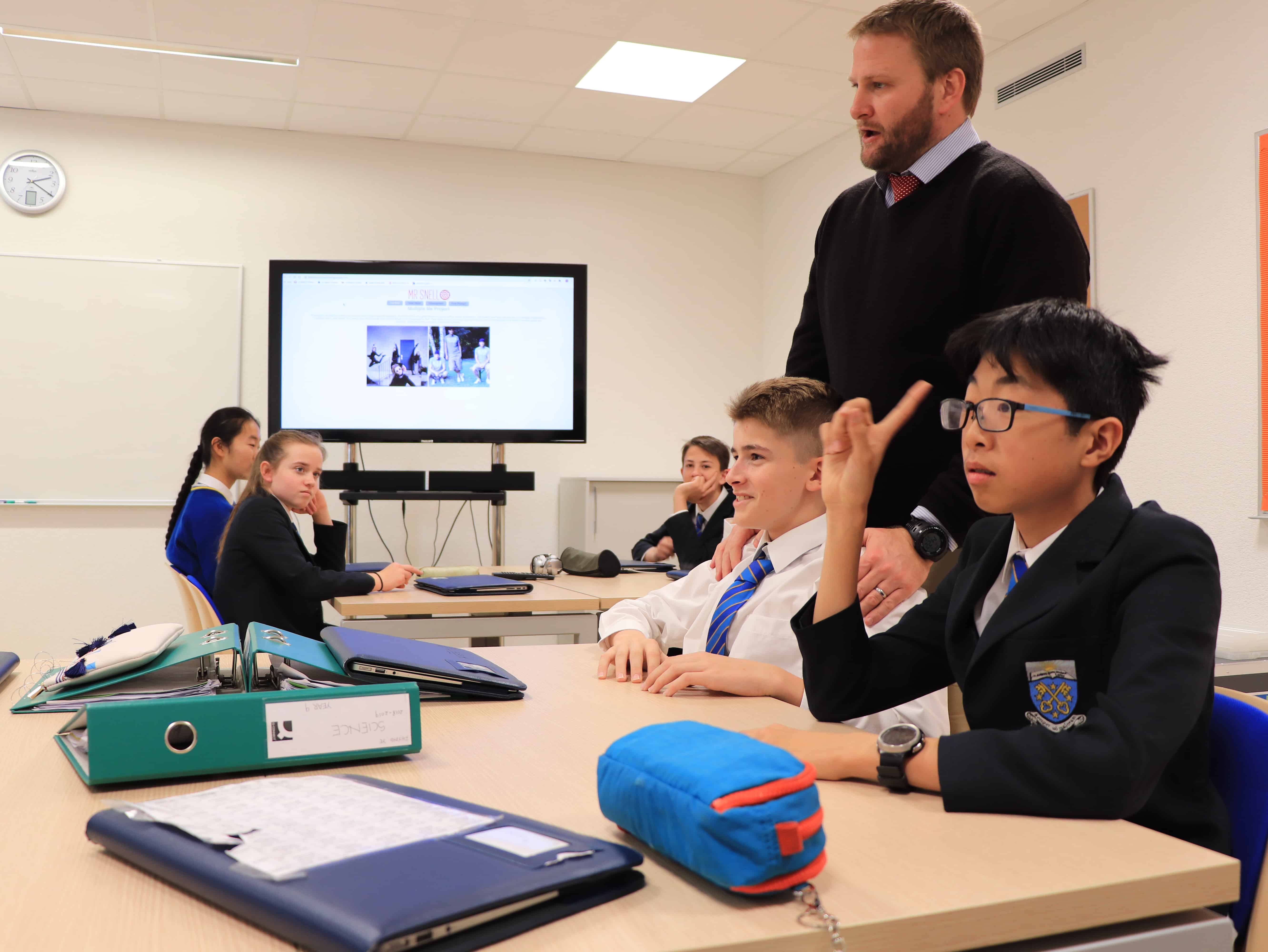An Unrecognisable World

“Wasn’t like it in my day.” Well no it wasn’t, times have moved on I’m afraid, and most definitely for the better. Technology has changed nearly every aspect of being human. Some people are calling it the ‘fourth industrial revolution’. Nanobots are soon to be inserted in our bodies to remove cancerous cells, we have gathered 80% of the world’s data in the last two years, and the five most valuable companies by market value in the world are tech firms. It’s safe to say, things have changed.
However, at school and at home, children are still, well, children. They haven’t changed that much. The world they are growing up in is an entirely different place. The world they are going to be part of as an adult will be unrecognisable. Will the world of tomorrow be scary? Exciting? Challenging? It’s up for debate, what word you want to use, and how ultimately you want to look at it. What is not up for debate is the need to prepare our children and students to embrace this new world and make it a safe and happy place to live. What we can no longer choose to do is to provide an education that is no longer relevant.
THE NEW FACE OF EDUCATION
Technology-rich education is the new ‘norm’ for modern schools. Schools are expected to have access to the fastest, most reliable hardware and software, and deliver high-speed Internet access anywhere, anytime. The learning environment has evolved for the better, no doubt about it. Infrastructure development is the easy bit though. Setting up Wi-Fi coverage, cloud services and giving every student a brand-new device represent the very first step towards transforming methods of teaching and learning. But it can’t just stop there.
Will Richardson, author of Modern Learners, argues, “Putting technology first, simply adding a layer of expensive tools on top of the traditional curriculum, does nothing to address the new needs of modern learners.”
It doesn’t take much research to realise that actually what we need to be looking at is ‘how we are using technology’, not ‘what technology we are using’. As a parent, I would suggest asking about this when looking at your child’s school choice. It is straightforward for schools to say, “We are a 21st century school; everyone has their personal device.” This alone is not enough though, the “how” is what matters. How is technology being used to enhance learning? How are we reinforcing collaboration and creativity? How do we nurture emotional intelligence and critical thinking? How do schools provide students with useful guidance in navigating this digital landscape? The list of ‘hows’ is endless and at Le Régent College, this is where our focus is.
In 2018 I had the pleasure of meeting John Couch, Apple’s Vice President for Education and there are many things he said that filled me with inspiration. However, his main message seems to always be about the need for pedagogical change. Children are learning in a completely different way, and we need to use technology to make learning engaging and challenging. Technology means the classroom walls are no longer relevant. John is the author of ‘Rewiring Education’, a fascinating book if you have a desire to rethink the default.
Technology in itself isn’t as important as what we do with it. Beyond making learning more engaging, new technology has the potential to develop collaboration, creativity, communication and critical thinking, essential skills for the 21st Century. When I reflect on how learning is changing, I always remember one of my students, George. George is a very enthusiastic member of my Year 5 Computing class. If anyone has a question, it is George. He takes great pleasure in showing the class something new he can do at the start of every lesson, and I love it. The thing I like the most is asking George “How did you learn that?” His answer is mostly, “the Internet.” Learning has changed.
RESPONDING TO AN UNRECOGNISABLE WORLD
If you focus too much on the media headlines and the pessimistic view, it would be easy to start to panic. But I believe all it means is that schools, teachers and parents need to do some new learning. The Internet is only around 11000 days old. Amazing really, it is still in its infancy. What will it look like in 10 years? How very new this whole thing is helps to provide a broader perspective that all is not lost. Its short rise to fame coupled with the level of impact it has already had reminds us that we have to engage in it. Technology is here to stay. This is why at Le Régent College we enable our teachers to critically reflect on their practice, and we assist them in taking their teaching to the next technological level as to meet the needs of our students. In other words, we allow our teachers to become learners again and integrate this new technology in their teaching. I believe wholeheartedly that all teachers are driven by the success of others, and want to do the best job they can for our children. With this in mind, schools must make sure that when they push any new technology out, they engage their teachers and help them integrate it in their thinking and their teaching.
Our next teacher training day is focusing on Apple and Google tools for Education, and we expect our teachers to complete their Apple Teacher and Google Educator training, which by no surprise, is digital. Also, the same teacher training day has sessions on inquiry-based learning, growth mindset and metacognition. It is paramount to bring new thinking to the planning table. Teachers need more in their toolkit; they require knowledge of the broader learning model, challenge-based learning, inquiry-based learning, 21st-century learning, blended learning and all the rest. These are the things we must learn as teachers; these are the things that will harness and develop the skills our children will need for the world they’re entering. How we are using technology is where the focus is now and most definitely should be. In a school where every student has their device and is connected to the most fantastic learning resources ever created, teachers are no longer the only experts in the room. As teachers, we need to be excited by that.
THRIVING IN AN UNRECOGNISABLE WORLD
At Le Régent College we do give every student their own device. We do make extensive use of digital learning platforms and educational software. We do have Makerspaces in our Infant, Junior and Senior Schools. We do reflect on ways to use technology to extend and develop learning. We do study digital citizenship throughout our curriculum. We do allow our students to take their devices home. We do ask students to hand their personal devices in throughout the day. We do hand all technology in at night and switch off. We are committed to supporting our students in this unrecognisable world. It may be uncertain, and it may be “not like my day”, but it is an incredible time to be a learner, it is a magnificent time to be a teacher, and if we continue being reflective and open-minded our children will thrive in this unrecognisable world.
Jonathan Snell – Head of Digital Learning at Le Régent College
